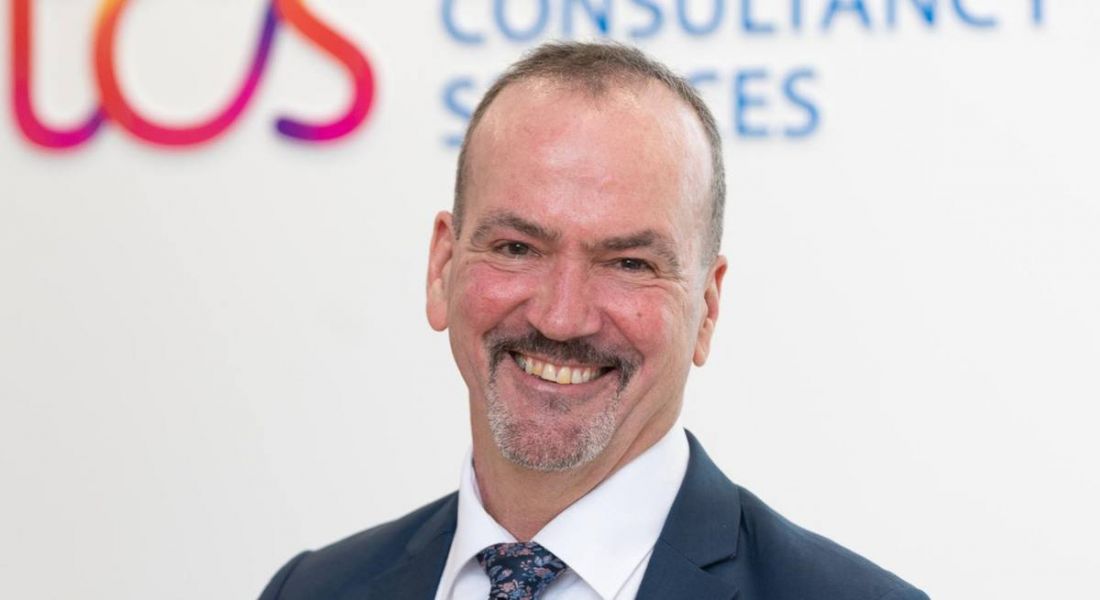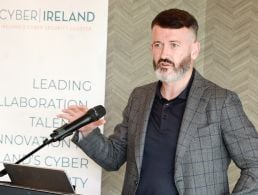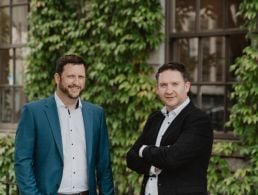Tim Kelley of TCS says cyber resilience is about so much more than technical response. It’s about people – and that is why investing in skills is important.
“In my experience, Ireland’s talent can stand toe to toe internationally with the best. It can scale. Cybersecurity is most certainly a growth industry, future-oriented.” Tim Kelley is discussing Ireland’s cybersecurity talent landscape, which he has high hopes for. He is well-placed to comment on the north-west in particular since he is one of the contributors to a recent cybersecurity skills report on the region.
The report was published by Regional Skills North West and Cyber Ireland. It is forecast that the north-west region could see growth in cybersecurity-related jobs quadruple from 201 this year to 830 jobs by 2030. Kelley was involved in the creation of the report in his role as strategic head of threat management centres in the UK, Ireland and Europe at Tata Consultancy Services (TCS). He is based at TCS’ Global Delivery Centre in Letterkenny so he knows a lot about the challenges and opportunities on the ground in the region.
Despite being relatively new to his current role, Kelley is not new to cybersecurity. He has more than 30 years of experience and more than 20 years in leadership roles. Like most cybersecurity leaders, Kelley points to the skills shortage in cybersecurity, explaining that there is too much demand for skills and not enough to go around. “The gap in some parts is due to the fast growth in demand for cybersecurity skills and the shortage of supply.
“Think of the exponential demand on our cybersecurity leaders from multiple fronts. In cyber crisis management, cyber resilience is much more than technical response: it is people and mentorship, trust skills and servant leadership, with all the behavioural, cultural, social and business context requirements that are required to create self-aware teams through feedback and guidance. On the technical side of the house, enabling your organisation’s business goals through the secure application of technology requires a constant refresh on the potential security gaps in new technologies and mitigation strategies.”
Educating the next generation
As Kelley tells SiliconRepublic.com, he is determined to make his mark and help encourage the next generation into cybersecurity careers. He believes this is the way forward. It’s also personally rewarding.
“For me, personally, the amount of work we do with young people gives me a lot of pride,” he says of TCS and the wider community. He has worked on “dozens” of career development programmes for young people through the years, such as CoderDojo, Code4Girls, TCS Go Innovate Together, TCS Hackquest and Ignite My Future.
He recalls the process of starting a CoderDojo group in Letterkenny fondly. For those who don’t know, CoderDojo is a global movement comprised of local volunteer-led teaching groups encouraging young people to code for free.
“Many moons ago you could see a disparity in opportunity for the ‘haves’ and ‘have nots’, individual, regional, international, you name it. I remember there was a radio programme on Today FM describing CoderDojo. Volunteers donate time and knowledge, hosts donate facilities and there is no fee. Whoever wants to come and learn shows up…
“Two listeners that day were from our firm and a family resource centre in Letterkenny called Cara House. The decision was made to try to use the model locally. We gathered volunteers, held an open day, not really knowing what to expect. There was a queue down the block as far as you could see. It was all word of mouth. Every Saturday, from then up to Covid, volunteers and kids from the ages of eight to 18 descended on Cara House to teach and learn technology, coding, robotics, you name it.”
Kelley also recalls working with a second-level girls’ school to bring a scheme called Code4Girls to its pupils. Like most areas of tech, cybersecurity has a gender gap – and Kelley says this issue remains particularly in security. He worked with volunteers, teachers and administrators to deliver the programme, which “was great fun”.
“My favourite part is the ‘aha moment’ young people have when something clicks. Totally makes your day. I think young people fascinate us all. They are like a window into our younger selves, those dreams and opportunities. And they are an extension of our personal relationships, family and friends.”
Helping young people discover technology and cybersecurity concepts is something Kelley enjoys perhaps because he has memories of being a techie kid himself. He says his current career came about via “a string of coincidences”.
Curiosity of kids could be an asset for cybersecurity
Kelley says he was always interested in the world around him and current affairs.
“That translated into a political science undergraduate degree, a combination of the classics with theories of behaviour and critical thinking.” He recalls being fascinated by the former Soviet Union, so he learned about Russia just as Gorbachev came to power. Around the same time, technology was beginning to advance slowly. Young Kelley was fascinated with that too.
“Like many of my generation, I tinkered with building and trying new things. I tried my hand at telephone PBXs, deploying LANs. T-base telecoms cabling was going out and Ethernet was coming in. In New York, I ran technology for a boutique bankruptcy firm and started a software spinout and an internet training centre. The latter fell flat as folks were still convinced the Internet was just a fad.”
With the benefit of hindsight, it’s pretty easy to say that the Internet was definitely not a fad. The clients and stakeholders Kelley encounters can attest to this, as can the young people he and his colleagues help to educate. The latter group may someday be providing the answers to future cybersecurity debacles – and this is something Kelley is keenly aware of. He also sees his education advocacy as a way of giving back to the tech community here, strengthening its future talent pipeline.
“Ireland has been very good to me. It shared my now wife with me and welcomed me to make my home and family here. I can never give back enough to repay,” says Kelley.
“But I can help younger people make more informed choices, by sharing my own experiences and what insights might be of value to them. It is very difficult today to see through the noise and the hype, for all of us. If one of the young people we interact with comes away with some clarity on what they do or do not want to do in their professional lives, that is a total win in my book.”
10 things you need to know direct to your inbox every weekday. Sign up for the Daily Brief, Silicon Republic’s digest of essential sci-tech news.












